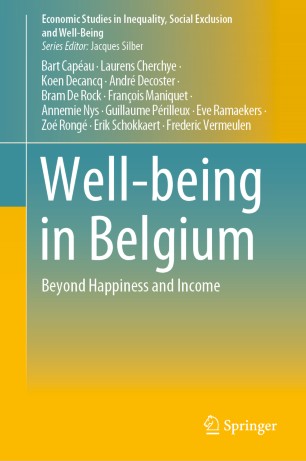

Most ebook files are in PDF format, so you can easily read them using various software such as Foxit Reader or directly on the Google Chrome browser.
Some ebook files are released by publishers in other formats such as .awz, .mobi, .epub, .fb2, etc. You may need to install specific software to read these formats on mobile/PC, such as Calibre.
Please read the tutorial at this link: https://ebookbell.com/faq
We offer FREE conversion to the popular formats you request; however, this may take some time. Therefore, right after payment, please email us, and we will try to provide the service as quickly as possible.
For some exceptional file formats or broken links (if any), please refrain from opening any disputes. Instead, email us first, and we will try to assist within a maximum of 6 hours.
EbookBell Team

5.0
20 reviewsWhat constitutes a good life? For most people, well-being involves more than a high income or material prosperity alone. Many non-material aspects, such as health, family life, living environment, job quality and the meaningful use of time are at least as important. Together, these factors also influence the degree to which people are satisfied with their lives, and help to determine how happy they feel.
This book argues that happiness and life satisfaction do not form a good basis for measuring well-being, and proposes an alternative method that not only considers the various aspects of well-being, but also the fact that people have their own views on what is important in life.
Not limited just to theory, the book also presents a large-scale, representative survey involving more than 3000 adults from over 2000 Belgian families, which charted the various aspects of the individual well-being of Belgians. Focusing on the unequal distribution of these various aspects of well-being within families, the survey showed that some Belgians are more likely to suffer from cumulative deprivation in multiple dimensions. Based on this innovative study, the book describes which people in society are worst off – and these are not necessarily only people on low incomes or those who feel unhappy – and proposes that policymakers prioritise these individuals.